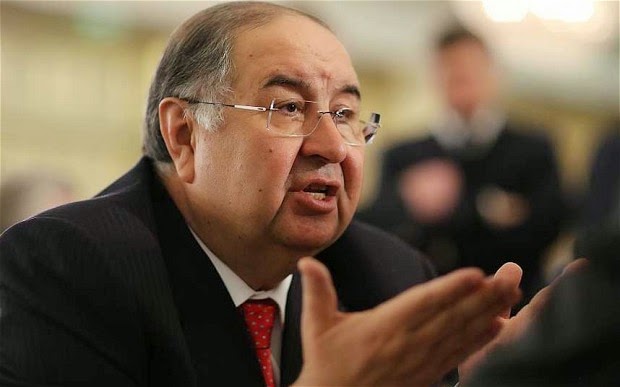WORLD CUP:'Rarely have Brazil looked so ordinary, so human'
18 June 2014
By Ben Smith - BBC Sport
This was nothing like watching Brazil.
The Selecao have rarely looked so ordinary,
so human. They trudged from the field at
Estadio Castelao to a soundtrack of
whistles, shoulders slumped, faces crumpled
with frustration.
This was not in the script.
Some 6,000 Mexico fans serenaded their
heroes, danced in the stands, revelled in
Brazil's moment of anguish. A goalless
draw was a setback for Brazil, as much as it
was a significant step forward for their
opponents.
And yet, as the Brazilian squad fronted up to
the media after the match, it was hard not to
reflect on the past.
A year ago, almost to the day, Fortaleza had
embraced Brazil as few other cities do.
Driven on by a partisan crowd, they had
done enough to beat Mexico and no more.
Brazil beat Mexico 2-0 in
Fortaleza on 19 June 2013
en route to winning the
Confederations Cup
Goals by Neymar and Jo gave Brazil
momentum that would sweep them all the
way to the Maracana and a thrilling victory
over Spain in the Confederations Cup final.
As with 12 months ago, Fortaleza played its
part. Every corner of every street was
decked in yellow and green, every child
dressed in those familiar colours.
The pride at hosting Brazil in a World Cup
match was tangible and, at times, all-
consuming. The traffic was so bad in
Fortaleza that the legendary Pele had to
listen to the first half of the match on the
radio.
On the streets around the stadium, crowds
gathered to see the team coach pass by. A
200ft Brazil flag draped over a crane set the
mood.
The anthem was every bit as stirring, every
bit as passionate and patriotic as it had
been a year ago. In homes around the
country, Brazilian TV put the words on every
screen. No-one held back. Neymar was no
exception, his tears flowing as the anthem
drew to a close.
The stage was set for the Selecao to play
their part. Brazil expected. But history did
not repeat itself.
Coach Luiz Felipe Scolari spent much of the
90 minutes kicking water bottles around the
technical area.
Luiz Felipe Scolari's side
were again well short of their
best at Estadio Castelao
This was an evening of frustration on the
field, in the stands and all around the
country. This was a match in which Mexico
exposed Brazil's over-reliance on the
creativity of Neymar and the craft of Oscar.
Fred struggled to impose himself, his touch,
once again, letting him down at the crucial
moments. The Fluminense striker attempted
16 passes, half of which failed to find their
target.
The opening-day victory over Croatia had
done little to pacify the critics. Then, Fred
had no shots, no assists and did not make a
single run into the attacking third.
His reaction to the slightest of tugs by Dejan
Lovren won Brazil a fortuitous penalty but
his effectiveness is now being questioned
like never before. Jo, who replaced him in
the second half, was no more convincing.
Paulinho and Luis Gustavo failed to
establish any kind of superiority in midfield.
Few would question their guts, but they
lacked guile.
This was a Brazil team with style but no
substance. A Brazil team that faces more
questions, more headaches.
In the distant past, this city holds difficult
memories for Brazil, too. It was here, 39
matches ago, that Brazil last lost a match on
home turf, 1-0 to Paraguay in 2002. There
were periods in the second half against
Mexico that record was threatened.
From the outside, this feels like a team
straining under the weight of expectation.
And yet that was not in evidence as the
Brazil players came through the rat-run
occupied by the world's media. Every player
stopped to speak. There was no sense of
panic, no sense this had been the setback
the world believed it was.
Defender David Luiz said: "We are not
down. Mexico are a great team, they have
great players. We were unlucky in some
moments, their goalkeeper had a great
game.
"But it is OK, that is what happens in World
Cups. We have great belief in ourselves. The
country is with us."
History of all kinds was fresh in the memory
at Estadio Castelao. But, as the players left
the stadium and boarded the team bus,
Scolari may have been reminding them of
another memory from the past.
Brazil do not often draw 0-0. The last time it
happened in a World Cup match was at the
1958 tournament in Sweden, in the group
stage against England. It was a setback, but
Brazil went on to win the competition.
On the evidence of the draw with Mexico,
this Brazil side still has some way to go to
repeat that feat.
The pressure is extraordinary, the weight of
expectation immense, but this is a team that
stands and falls together. Unity is at the
heart of what Scolari is trying to build.
Bigger tests await, Brazil must improve. If
they are to win a sixth World Cup this
summer, time is running out.



Comments
Post a Comment